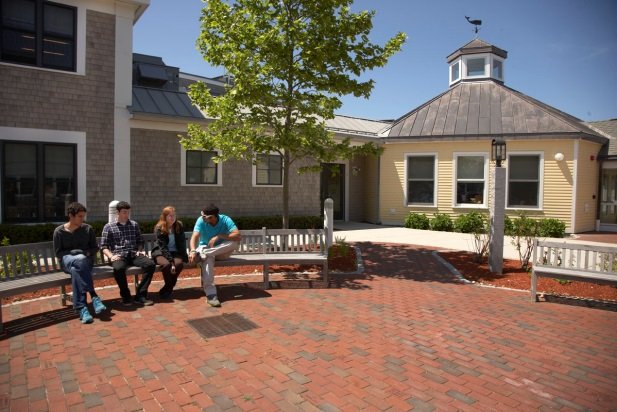

Special Education Decision Results in Placement at Riverview School
Sankey Law Offices recently prevailed in a hearing before the Bureau of Special Education Appeals which resulted in the placement of a 15 year old boy at Riverview School. The student, who presents with diagnoses of Autism Spectrum Disorder and an intellectual impairment, was placed in a partial inclusion program at Fairhaven High School. It was Fairhaven’s position that its program was appropriate because the student was able to access the general curriculum and was an active participant in his classes. Moreover, Fairhaven argued that the student loved to participate in band and that his removal from the community to attend a private school would deprive him of his independence and the ability to socialize with non-disabled peers. Over the course of a three-day hearing, the student’s parent was able to demonstrate that the student was unable to access grade level academics even with a dedicated paraprofessional. The parent also showed that Fairhaven had failed to provide recommended reading intervention and, most importantly, that the district ignored its obligation to embed social skills instruction throughout the student’s school day. Based in large part upon these deficiencies, the hearing officer ordered Fairhaven to fund the student’s placement at Riverview School. From our perspective, there are at least three important lessons from this case. First, the hearing officer was resolute in requiring that there be objective measures of performance to establish effective progress. The fact that the student appeared engaged and happy in general education classes was not enough to justify Fairhaven’s program. Instead, the hearing officer noted that the lack of objective measures – such as evaluations and data-driven assessments – undermined Fairhaven’s claim that the student was making effective progress. Most notably, the hearing officer rejected the notion that report cards and progress reports are sufficient to establish progress, describing them as little more than “subjective and global reports of class participation” rather than objective measures of academic progress. Second, the parent demonstrated that the student’s goals, objectives and benchmarks were largely unchanged over a three year period. The hearing officer noted, quite correctly, that the continued presentation of identical goals indicated that the student was not making progress. This is a clear reminder that, whether participating in a team meeting or reviewing an IEP, it is critical to pay attention to the goals and benchmarks in order to determine whether the student is truly progressing. Finally, as we always stress to our clients, the retention of highly qualified and articulate experts to evaluate and observe is essential to success at a hearing. In this case, the hearing officer credited and relied upon the parent’s expert to a very high degree in determining the student’s learning needs and in evaluating Fairhaven’s proposed program. We continue to believe that a case cannot be won in any hearing without highly competent and thoughtful expert testimony. The bar is always high when seeking an out-of-district placement for a student at a school district’s expense. This case illustrates the painstaking detail that is required
Read More
What Impairments are Considered ‘Disabilities’ for Special Education Purposes in Massachusetts?
Are you wondering whether your child has a disability that may qualify him or her for special education services? The Individuals with Disabilities Education Act (IDEA) – the federal law that governs special education services – specifies what impairments qualify as disabilities for special education purposes. The IDEA recognizes the following impairments as disabilities: Intellectual disabilities, Hearing impairments, including deafness, Speech or language impairments, Visual impairments, including blindness, Serious emotional disturbance, Orthopedic impairments, Autism, Traumatic brain injury, Other health impairments, or Specific learning disabilities. If your child has an impairment that fits within one of the above ten categories, and there are indications that your child may not be making effective progress in the general education setting due that impairment, your child may be eligible for special education and related services. See our article: Who Qualifies for Special Education Services? to learn about the referral and evaluation process. For more information, please contact us at 781-930-3127 Special Education Lawyer | Massachusetts | Boston For more information, please contact us at 781-930-3127. Notice: JavaScript is required for this content.
Read More
United States Supreme Court to Consider Whether to Adopt a Heightened FAPE Standard
For the first time since 1982, the United States Supreme Court will consider what level of educational benefit a school must deliver to a student receiving special education services in order to meet the Free and Appropriate Public Education (“FAPE”) requirement of the Individuals with Disabilities Act (“IDEA”). Currently, circuits are split on what level of educational benefit a school must deliver in order to provide FAPE. The Tenth Circuit, among others, merely requires schools to provide “some educational benefit”. On the other hand, the First Circuit (which includes Massachusetts) and others require schools to provide a heightened educational benefit – one that is “meaningful.” “Meaningful” is otherwise understood as “more than . . . trivial.” The case being heard by the Supreme Court is Endrew F. v. Douglas County School District, RE-1. In this case, the parents believed that their son with autism was not being provided FAPE by their local school district in Colorado. Due to their concerns, they unilaterally placed him in a private school and sought reimbursement from their local school district. The hearing officer, U.S. district court, and 10th Circuit Court of Appeals found in the school district’s favor, concluding that the student was being provided FAPE because he was receiving “some educational benefit.” The Obama administration, after being asked to weigh in by the Supreme Court, urged the Supreme Court to adopt the “meaningful benefit” standard, which now applies in Massachusetts. The Supreme Court’s decision will likely impact students receiving special education services in Massachusetts and throughout the country. We remain hopeful that the Court will recognize the importance of providing “meaningful” benefits to students requiring special education services. For more information, please contact us at 781-930-3127 Special Education Lawyer | Massachusetts | Boston For more information, please contact us at 781-930-3127. Notice: JavaScript is required for this content.
Read More
Who Qualifies for Special Education Services?
When your child demonstrates academic, social or emotional difficulties at school, you may wonder whether he or she might need special education services. How is a child found eligible for such services? The Individuals with Disabilities Education Act (IDEA) and Massachusetts law require that all children with disabilities be provided with a free, appropriate, public education (FAPE) in the least restrict environment (LRE). Public school districts meet these requirement by providing eligible children with special education and related services. In Massachusetts, eligible children can be between the ages of three and twenty-two years old. Children are determined eligible for special education services if they (1) have a disability, (2) are not making effective progress in a general education setting due to that disability, and (3) require specially designed instruction and related services in order to access the general education curriculum. In order to determine whether a child is eligible for special education services, a child must first be referred for an initial evaluation. Parents, caregivers, or professionals can make the referral. Upon receiving a referral, the school district where the child resides is required to seek parental consent before conducting an evaluation. If parental consent is not obtained, the district may seek authorization from the Bureau of Special Education Appeals (BSEA). Once parental consent has been given or authorization has been provided by the BSEA, the school district will conduct an evaluation of the child at no cost to the parents. The school district will then use the results of the evaluation to determine whether the child is eligible to receive special education services. For more information, please contact us at 781-930-3127 Special Education Lawyer | Massachusetts | Boston For more information, please contact us at 781-930-3127. Notice: JavaScript is required for this content.
Read More
Recognizing Dyslexia Awareness Month
October is Dyslexia Awareness Month. Special Education Attorney Jeff Sankey is pleased to announce that he has become a member of the International Dyslexia Association. The International Dyslexia Association is an international organization that concerns itself with the complex issues of dyslexia. The Association’s membership consists of a variety of professionals in partnership with people with dyslexia and their families. For a great source of information about dyslexia, turn to the Association’s website at http://www.interdys.org/. Despite federal and state laws mandating that public schools provide a free and appropriate education to all students, this often does not happen for many children with dyslexia. We share the Association’s guiding principles that all children with learning disabilities have the right to achieve their potential and that a child’s learning abilities can be improved with effective remediation. With so many of the youngsters that we represent struggling to learn to read, we are acutely aware of the process that families often need to negotiate in order to obtain necessary services for their dyslexic children. We are proud that our efforts on behalf of these children have resulted in orders from the Massachusetts Bureau of Special Education Appeals providing them with access to specialized placements designed to remediate their learning disabilities. In fact, we recently prevailed in a case against a Massachusetts school district on behalf of a child with Dyslexia, obtaining funding for an appropriate out-of-district placement. The full decision can be accessed here: Student v. Greenwood Public Schools For more information, please contact us at 781-930-3127. Notice: JavaScript is required for this content.
Read More
Educational Benefits Outweigh Costs to Private Placements
A recent article in Cape Cod Today reported that, among all Cape Cod school districts, 237 students with special needs had been placed in private placements during the last school year at a cost to taxpayers of $19 Million. As is regrettably common when the costs of educating our most severely disabled children are highlighted, this article elicited comments from readers suggesting that these children are merely being “warehoused” and that they derive no educational benefit from these placements. Nothing could be further from the truth. As an attorney whose practice frequently involves advocating for specialized placements for children with significant special needs, I can attest to the benefits that flow to these youngsters, not only academically but socially and emotionally as well. Critics of private placements overlook the reality that children are not placed outside of their local school district simply upon their parents’ request. A child’s entitlement to a private placement comes into effect only upon a finding that his local school cannot provide appropriate services to allow him to make meaningful progress in the area of his disability. In other words, a child does not get a private placement unless his local school is unable to meet his needs. No parent derives pleasure from having his or her child spending hours on a bus in traffic every day traveling to a private school, which is what many of my young clients must do. It is safe to say that, in a perfect world, all of these students would be educated in their home town in their local school alongside friends from their neighborhood. The reality is, however, that there is an abundance of significantly disabled children who have needs that their local school districts cannot serve, or choose not to serve, even though it would often be more cost effective to create more intensive programs within the District. Faced with no alternatives, these children have the absolute right to attend a private school elsewhere, one where they have the same opportunity to learn or to read or to simply gain life skills that will enhance their ability to live a productive life. The cost to society of not providing this type of critical education to our most needy and deserving students is staggering – both monetarily and morally – and dwarfs the $19 Million spent on Cape Cod last year. Written by Jeff Sankey For more information, please contact us at 781-930-3127. Notice: JavaScript is required for this content.
Read MoreParents Have the Right to Observe Their Child’s Special Education Program
What rights do parents have to observe their child in school? When you as a parent have concerns about your child’s performance, a classroom observation can provide important information about your child’s program. If you believe your child’s educational placement or program is inappropriate, parents can observe the classroom themselves or they can hire an expert or educational specialist to visit the classroom. In cases where the parents are considering filing a request for a due process hearing before the Bureau of Special Education Appeals (“BSEA”), an evaluation by an expert is almost always necessary. Without an observation by an expert, it is very difficult to prevail in a due process hearing before the BSEA. For instance, in a 2007 case before the BSEA, the hearing officer gave “little weight” to a parents’ expert who did not observe the student. If you wish to file a request for a due process hearing with the BSEA, an observation is an extremely important step in the process. What Rights Do Parents and Their Experts Have to Observe? In 2009 the Massachusetts legislature enacted a law strengthening the rights of parents and their evaluators to observe their child in school. The law requires that upon request, parents and parent-designated evaluators must be provided timely access to observe a child’s current program and any future program proposed for the child, including both academic and non-academic components of any program. This means that an observation can include gym class, art class and other specials in addition to academic classes like Mathematics and English Language Arts. All of these classes together make up your child’s educational program so it may be important to see your child in all of these classes to get a complete picture of his or her school day. While the law does not specify a certain amount of time for an observation, it must be of “sufficient duration and extent” to enable a parent or expert to evaluate the child’s performance in the classroom. For further clarification on this point, the Massachusetts Department of Elementary and Secondary Education (“DESE”) issued an advisory stating that the complexities of the student’s needs as well as the programs to be observed should determine the scope and length of the observation. The DESE made clear that school districts should avoid rigid adherence to defined time limits that do not take into account the student’s needs and the settings to be observed. In fact, in another case before the BSEA, a school district had a policy stating that no parent was allowed to visit the classroom for more than 1 hour per month. When this policy was challenged by a parent who sought a longer observation of her child, the hearing officer found that the District’s policy failed to take into account the student’s needs and the settings to be observed. As a result, the hearing officer permitted the parent to conduct an observation that was much longer and more continuous than the 1 hour per month policy set by the District. Limitations
Read More

